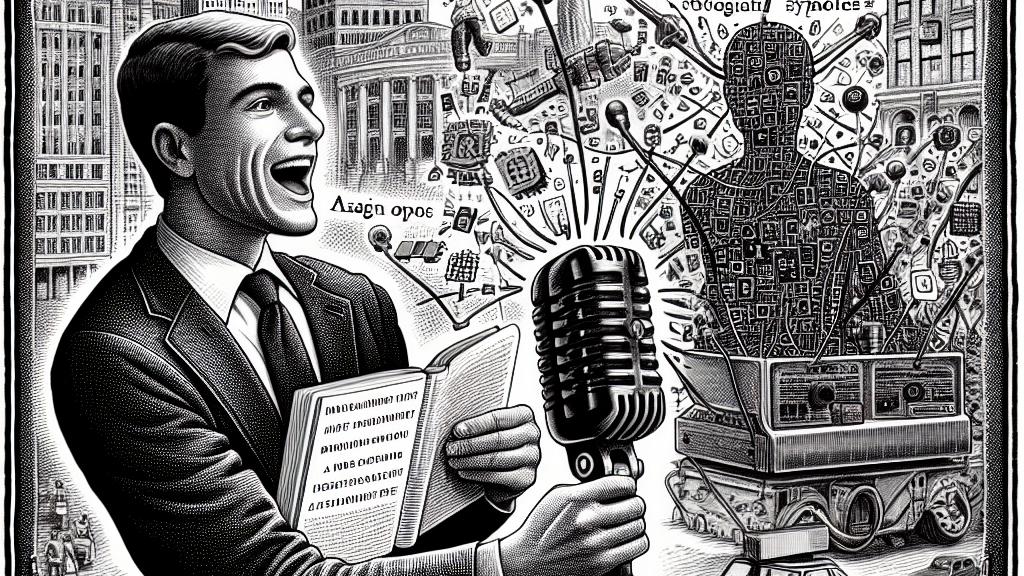A Writer Discusses the Output of AI-Generated Podcast from Their Book
Overview
- A writer creatively used Google’s NotebookLM to transform their book into an engaging podcast format.
- The AI displayed remarkable abilities by crafting lively dialogues and insightful summaries from the text.
- While impressive, the podcast revealed minor inaccuracies in details and contextual elements that need consideration.

The Setting and Inspiration
In the bustling landscape of the United States, an exciting experiment unfolded as writer Kyle Orlando embraced the groundbreaking technology of Google’s NotebookLM. Fueled by inspiration from AI expert Ethan Mollick, who successfully turned his book into an engaging podcast, Orlando was eager to explore whether this innovative AI could breathe life into his own narrative about the classic game Minesweeper. This endeavor represents a fascinating intersection of literary creativity and artificial intelligence, highlighting how authors can harness cutting-edge technology not just to write, but to interactively engage their audiences, transforming static words on a page into dynamic auditory experiences.
AI Capabilities in Action
When Orlando uploaded his manuscript to NotebookLM, he was astonished by the AI’s abilities—not only did it produce succinct summaries of his book’s core themes, but it also generated vibrant and interactive dialogues that drew listeners in. For example, during a segment, two AI-generated voices engaged in a dynamic discussion about the ethical dilemmas surrounding the game's use in corporate contexts, sparking curiosity and interest. This back-and-forth exchange felt like a casual yet insightful talk among knowledgeable friends, rather than a dry recitation of facts. It was as if the AI transformed his text into a living narrative, seamlessly blending educational content with captivating storytelling that could intrigue both fans of the game and casual listeners alike.
Reflecting on AI's Performance
However, while the AI's output was largely successful, Orlando didn't shy away from addressing its shortcomings. There were moments where factual inaccuracies emerged—like misquoted references—that could mislead listeners who were less familiar with the material. Additionally, the AI sometimes produced exaggerated vocal reactions that felt disconnected from the content, reminding us of the limitations that still exist in AI technology. Yet, despite these minor flaws, Orlando expressed that the overall experience was enlightening; it allowed even those who had never read his book to grasp its essence in a matter of minutes. He highlighted that, while one should be cautious when relying on AI for critical research or journalism, platforms like NotebookLM hold immense potential for distilling complex ideas into bite-sized, accessible formats. This hints at a thrilling future where AI not only assists in the writing process but also enriches our understanding of literature, creating new possibilities for how stories are shared and experienced.

Loading...